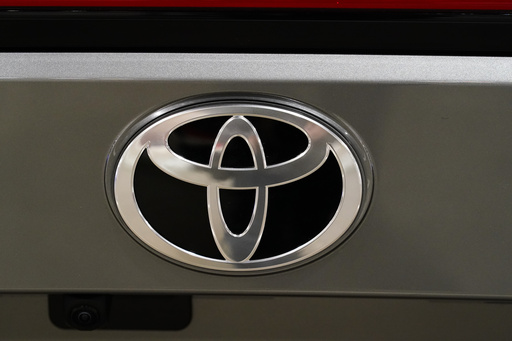
Toyota has announced a strategic initiative to expand its electric vehicle (EV) production and battery manufacturing in China, collaborating with the Shanghai government. This partnership underscores the Japanese automaker’s commitment to taking a more pronounced role in the rapidly growing EV market, especially in light of increasing global sustainability concerns.
Additionally, Toyota revealed plans to establish a new $14 billion factory in North Carolina dedicated to producing batteries for electric vehicles, hybrids, and plug-in models, with delivery set to commence for North American car models in April. These steps reflect Toyota’s response to criticism that it has lagged behind leaders like Tesla and BYD in the electric vehicle arena.
The company is establishing a facility in the Jinshan district of southwest Shanghai, which is slated to begin producing Lexus electric models in 2027. The initial production capacity is projected at 100,000 vehicles annually, which is expected to generate about 1,000 jobs. The North Carolina battery plant is anticipated to create approximately 5,000 jobs as well.
Toyota’s initiatives are emerging against a backdrop of rising trade tension in Asia, particularly following tariff impositions by the United States and China’s forthcoming retaliatory tariffs. Chief Financial Officer Yoichi Miyazaki emphasized the company’s commitment to being a respected entity in every market it operates, but did not directly address the tariff situation during discussions with the media.
In its latest fiscal quarter, Toyota reported a significant 61% increase in profits compared to the same period last year, totaling 2.19 trillion yen (approximately $14 billion), supported by revenues of 12.4 trillion yen (around $81 billion), marking a 3% year-on-year rise. This rebound in sales followed a decline earlier in the fiscal year due to a certification scandal in Japan that had temporarily halted production.
Last year, the automaker admitted to various lapses in testing practices, such as using outdated data during crash tests and inaccuracies related to airbag deployment and engine performance assessments. Although these issues had not compromised vehicle safety, they did impact production in Japan.
Moreover, Toyota has adjusted its profit projections for the fiscal year ending March 2025, raising the estimate from 3.6 trillion yen (approximately $24 billion) to 4.5 trillion yen (around $29 billion), attributing this improvement to favorable foreign exchange rates and ongoing cost reduction strategies. Nonetheless, this revised outlook is still below last year’s profit of 4.9 trillion yen.
The new enterprise in China is instrumental to Toyota’s strategy to address the burgeoning demand for electric vehicles within the country. Toyota maintains partnerships with established manufacturers like the FAW Group and Guangzhou Automobile Group, which will persist alongside these new developments. The automaker aspires to support China’s goal of reaching carbon neutrality by 2060, indicating a focus on tailoring battery electric vehicles (BEVs) to meet the specific preferences of Chinese consumers.
“Our objective is to become a brand that the Chinese people love and endorse,” stated Miyazaki, emphasizing the company’s commitment to local engagement and adaptation.

